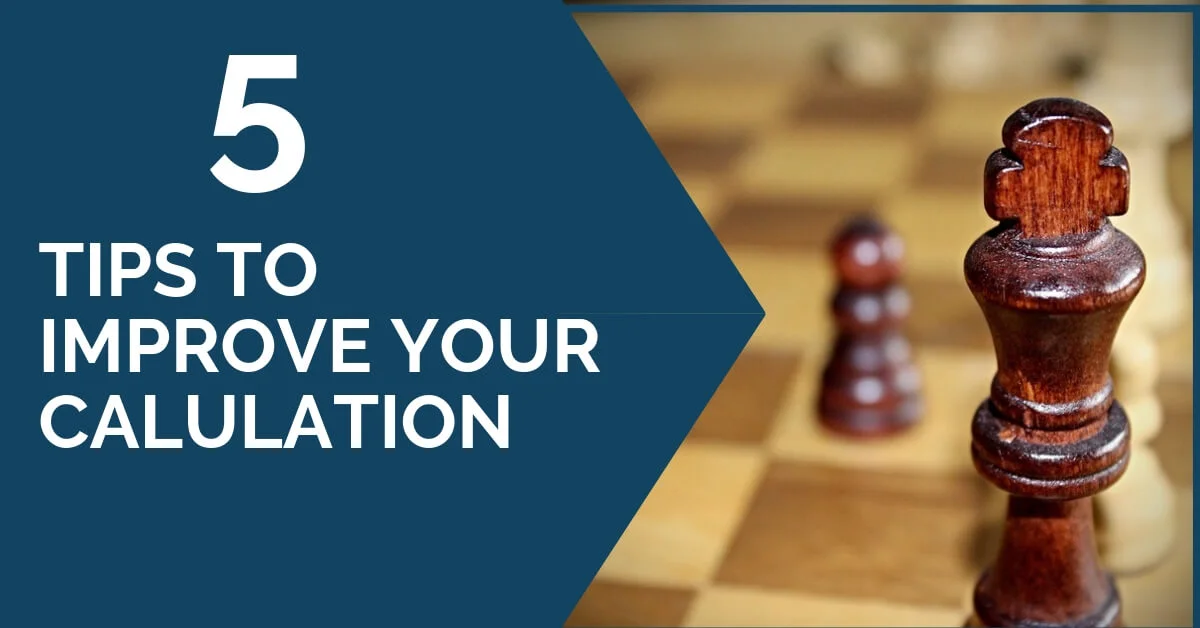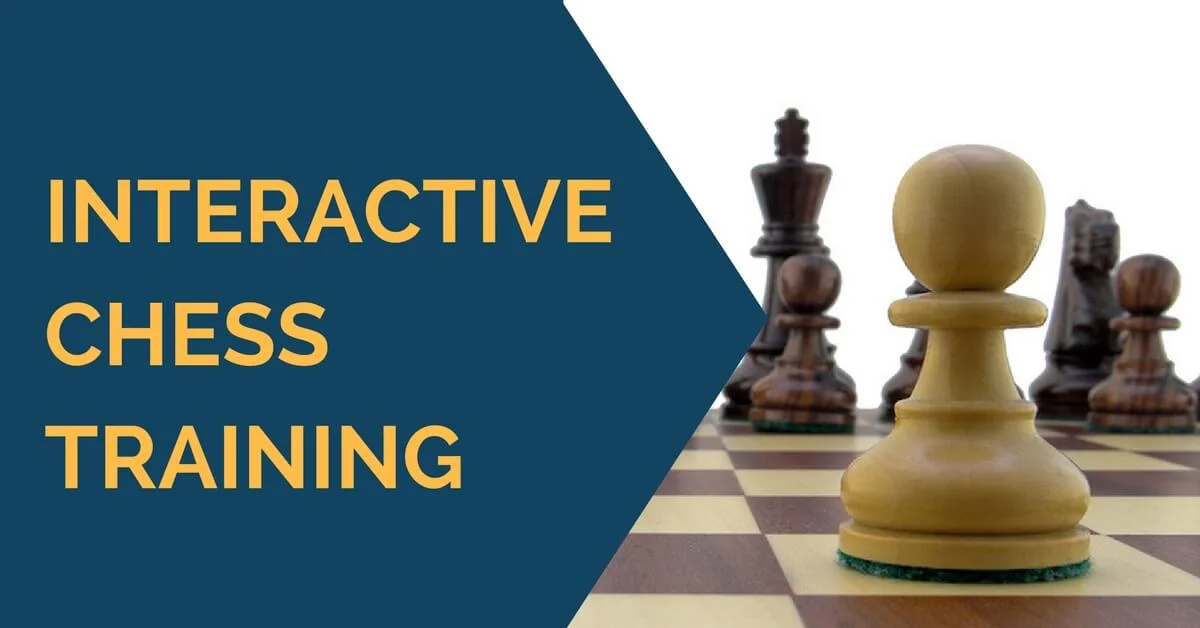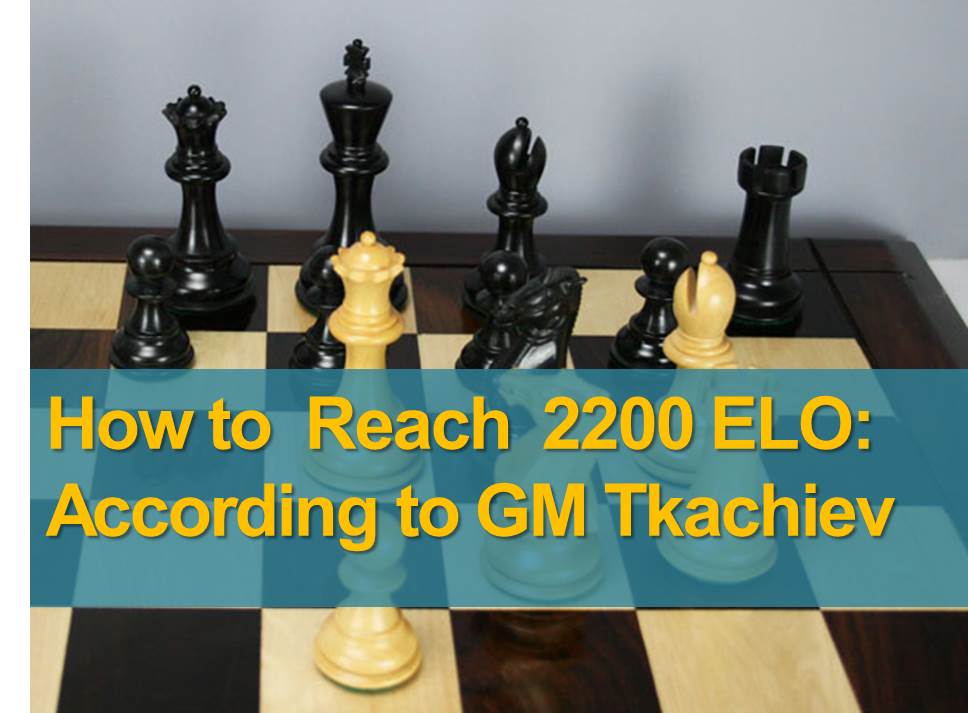5 Tips to Improve Your Calculation

Improve Your Calculation: The ability to calculate is crucial in every chess player’s journey to improvement. There’s no such thing as a completely positional game where no calculation is needed; no matter how calm and quiet things have been going, there’s always a moment where you’ll need to see more than your opponent.
The bad news is that good calculation doesn’t happen overnight; you have to invest many hours of training and this type of training should never end, only increase in difficulty. No matter how high the level of a player is, their calculation has to be trained always. You can do this even when you are watching a game online; the more you train it, the better and easier will be during your tournament games.
In this article we will give you a few tips that you can apply during your game and home preparation in order to improve your calculation skills:
1. Improve Your Calculation – Know when
While the good calculation is very important, it is not always necessary. Learn to differentiate those moments during your game and not waste time trying to figure out long-line positions where this is totally useless.
For example, there are positions where you’ll only need to use your positional sense and the basic concepts of strategy. In such cases, starting to calculate long lines will only get you tired and leave you with no time on the clock for the truly difficult moments. Check for immediate threats and make sure you’re not going to hang anything, though!
2. Know how much
One mistake that many aficionados make is that they want to “solve” the game from an early stage of the game, see the lines until mate even if the position is not of that character.
This usually happens when playing a lower-rated opponent, but it normally only leads to early tiredness. Play the variations that keep the position balanced and complicated, and set traps. Also, keep your eyes open for any mistake your opponent might make.
3. Improve Your Calculation – Don’t stop it too soon
One famous piece of advice is to calculate one move more from the moment you’d normally stop in your calculation. It often happens that this is the moment where we miss something; how many times haven’t you played a line because you thought it didn’t bring anything good only to discover at home that it was the right way to go had you looked for one more move?
It is something that happens to every chess player, but if you train yourself to calculate a bit further you’ll see a lot of improvement in your games.
4. Include all candidates
Sometimes the candidate’s moves in a position are obvious, sometimes you have to look a bit harder to find the right way to go. Train your brain to look for hidden possibilities, moves that you wouldn’t normally think of.
These are the trickiest and easiest to miss during a game, but including such positions in your training routine will make the moves easier to spot in practice.
5. Improve Your Calculation – Look for active moves
The first things you have to always check in your lines are checks, captures, and other strong threats that force you to take action against them.
One of the most common mistakes involves automatic decisions. For example, when you capture a piece. And then think that your opponent is forced to take it back, without considering any other option. Intermediate moves are tricky, but usually very powerful. Search for them in your calculation and avoid any unwanted catastrophes!
These are a few practical pieces of advice that you can use not only when training calculation, but also during your game. We hope you’ve found them useful and they will help you improve this important skill.
Want to know more about Calculation? Look at 7 Reasons to Start Working on Yours as well as 5 Steps to Doing It Like a Grandmaster.
We also recommend reviewing Motivation in Chess: Top 3 Ways to Keep It and Journey to the Chess Kingdom.
Thank you for reading!





![5 Things Every Chess Player Should Do to Improve [Cheatsheet Enclosed]](https://thechessworld.com/wp-content/uploads/2017/07/5-things-every-chess-player-should-work-on.webp)




Comments: